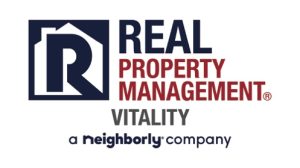Tenant Screening: Must-Know Tips for Atlanta Managers
Focus keyword: Tenant Screening Best Practices for Atlanta Property Managers
Tenant Screening Best Practices for Atlanta Property Managers: Ensuring Reliability and Legal Compliance
Tenant screening is a critical process for property managers in Atlanta, aiming to identify reliable tenants and minimize the risks associated with property rentals. This crucial preliminary step not only safeguards the property from potential damages but also ensures a steady flow of rental income. However, doing so within the confines of Georgia law is imperative to avoid any legal pitfalls. This article will delve into effective strategies Atlanta property managers can adopt to optimize their tenant screening process while remaining compliant with legal standards.
Understanding Georgia’s Legal Landscape
Before laying down any specific tenant screening strategies, it’s essential that property managers understand and adhere to the legal framework set by Georgia law. The Fair Housing Act is a significant statute that impacts tenant screening processes nationwide, and Georgia has its specific regulations that need consideration. It’s prohibited to discriminate against potential tenants based on race, color, national origin, religion, sex, familial status, or disability. Understanding these rules can help managers avoid legal issues while also promoting fairness and equality in the housing sector.
Developing a Comprehensive Screening Policy
Having a clear and consistent policy is the backbone of effective tenant screening. This policy should outline the necessary steps and criteria used during the screening process, including credit checks, employment verification, past rental history, and references. It’s essential that this policy is applied uniformly to all applicants to prevent any claims of discrimination.
Utilizing Technology for Efficient Screening
The rise of digital platforms has revolutionized how property managers can handle tenant screenings. By utilizing online tenant screening services, managers can quickly obtain pertinent details such as credit reports, background checks, and prior eviction records. These platforms often provide a consolidated report, which can help in making informed decisions swiftly. Moreover, these systems ensure that all collected data is handled securely, thus respecting the privacy of all applicants.
Setting Realistic and Lawful Criteria
While it’s crucial to set high standards to attract quality tenants, these criteria must also be realistic and in line with Georgia’s legal expectations. For instance, while a high credit score can be a benchmark for financial reliability, property managers should also consider candidates with slightly lower scores who have a stable employment history or a positive recommendation from previous landlords. Outlining why an applicant was declined is also crucial if any disputes arise.
The Importance of Personal Interaction
Despite the benefits of technology, personal interactions still play a vital role in the tenant screening process. Conducting interviews with potential tenants can provide insights that are not always apparent on paper. This step also offers an opportunity to assess the applicant’s communication skills and general demeanor, which are important for maintaining a positive tenant-manager relationship.
Regular Updates and Education
Laws and regulations governing tenant screening and property management are subject to change. It’s crucial for property managers in Atlanta to stay updated with these changes to avoid non-compliance. Attending workshops, taking part in industry seminars, and subscribing to relevant legal and property management resources are excellent ways for managers to stay informed.
Conclusion
Effective tenant screening is a fine balance between finding reliable tenants and staying compliant with laws. By understanding Georgia’s legal framework, setting a detailed screening policy, utilizing technological tools, establishing lawful and realistic tenant criteria, and maintaining personal interaction, Atlanta property managers can optimize their tenant screening process. Regular updates and continued education on new laws and technologies also play a crucial role in enhancing the effectiveness of tenant screening practices. With these strategies, property managers can not only protect their investments but also build a thriving, compliant rental business.








